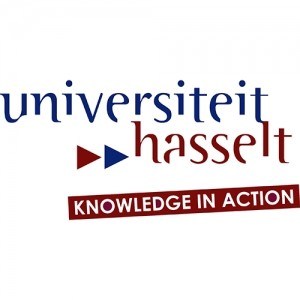Photos of university / #uantwerpen
The Bachelor's programme in Marine and Lacustrine Science and Management at the University of Antwerp offers students a comprehensive education in the science and management of freshwater and marine ecosystems. This programme is designed to prepare future experts capable of addressing complex environmental challenges related to aquatic environments, including pollution management, conservation, sustainable use, and ecosystem monitoring. Throughout the course, students gain in-depth knowledge of aquatic biology, marine ecology, water quality assessment, and the physical and chemical processes that shape aquatic systems. The curriculum combines theoretical lessons with practical experiences, such as fieldwork, laboratory analyses, and computer modelling, enabling students to develop essential skills for scientific research and sustainable management.
Students have the opportunity to learn about the impact of human activities on aquatic environments, the principles of marine and freshwater conservation, and strategies for ecological restoration. The programme emphasizes interdisciplinary approaches, integrating biology, ecology, chemistry, geography, and management principles. Additionally, students are trained in the use of modern technologies for data collection and analysis, such as remote sensing, GIS, and underwater surveying techniques.
The programme also focuses on the societal and economic importance of aquatic environments, encouraging students to consider policy development, environmental legislation, and stakeholder engagement in their projects. Internships and collaborative research projects with industry, government agencies, and research institutions are integral parts of the curriculum, providing real-world experience and networking opportunities. Graduates of this programme are equipped to pursue careers in environmental consulting, marine and freshwater resource management, research institutions, and governmental agencies dedicated to aquatic environment preservation and sustainable use. With its multidisciplinary approach, practical training, and focus on current environmental issues, the Bachelor’s programme in Marine and Lacustrine Science and Management aims to produce skilled professionals committed to protecting and sustainably managing our planet's vital water ecosystems.
Model Path part 1
Core courses
- Oceanography
- Estuarine and Coastal Systems
- Law and Ethics on Conservation of Aquatic Systems
- In-situ and Remote Sensing Tools in Aquatic Sciences
- River and Lake Ecology
- Limnology
- Seminars: case studies on biodiversity management
Broadening courses
- Governance and Policy in Development and Cooperation Part I
- Governance and Policy in Development and Cooperation Part II
- Internship
Supporting courses
- Geographic Information Systems
- Mathematics and Basic Statistics
- Biogeochemistry
- Data and Information Management
- Introduction to Marine and Lacustrine Biology
- Advanced Applied Statistics
Model Path part 2
- Master thesis
Major Biodiversity and Ecology
- Evolution and Biogeography of Aquatic Organisms
- Biodiversity of Aquatic Food Webs
- Ecology of Coastal Seas
- Marine Extreme Systems
- Lacustrine Systems
- Microbial Ecology
Major Conservation Biology and ecosystem Management
- Management of Aquatic Resources: Fisheries
- Integrated Coastal Zone Management: Mangroves, Sea-grass Beds and Coral Reefs
- Tropical Marine Ecology and Restoration
- Conservation Genetics of Aquatic Populations
- Environmental Impact Assessment
- Law of the Sea and Protection of Oceans
- Integrated Practicals on Conservation and Management
- Marine Biodiversity and Ecology
Major Environmental Impact and Remediation
- Environmental Impact Assessment
- Topics on anthropogenic impact in aquaculture ecosystems
- Ecological and Evolutionary Physiology
- Ecosystem based adaptation to global change
Major Marine and Lacustrine Geosciences
- Advanced sedimentology
- Paleobiology of Micro-organisms
- Stable Isotope Geology
- Ocean Drilling for Science and Energy
- Paleoclimatology and Climate Change
Requirements
- Applicants should hold an academic Bachelor’s degree in the related area. Students who are still completing their Bachelor’s degree are also encouraged to apply. They should submit an official letter in English from their university confirming that the student is expected to finalise her/his Bachelor’s studies at the end of the current academic year, and submit up-to-date authenticated transcripts with the results of the previous years.
- Applicants are also required to submit a GMAT or GRE test score. Both the verbal and quantitative score will be taken into consideration.
- TOEFL (Test of English as a Foreign Language): paper-based TOEFL level of minimum 550, a computer-based TOEFL level of minimum 213 or an internet-based TOEFL level of minimum 80. You can find more information about TOEFL at www.toefl.org
- IELTS (International English Language Testing System): a minimum score of at least 6.5, and on each part minimum 6.0. You can find more information about IELTS at www.ielts.org;
- A copy of your valid passport or identity card/a curriculum vitae
- A motivation letter
- A legalised copy of your degree certificate (please read more information on legalisation)
- Applicants that are enrolled in the final year should submit an original and signed letter from their college or university confirming that they are expected to finalise the program at the end of the current academic year
- A copy of your academic transcripts, provided with a stamp of the university
Scholarships
- VLIR-UOS: scholarships for students from developing countries: Scholarships are available for students from 54 scholarship countries in Africa, Asia and Latin-America to follow a training or master programme at the University of Antwerp.
- ASEM-DUO: Scholarships are available for students from China, India, South-Korea and Vietnam.
- Transition Fellowship Programme: Scholarships are available for students from 4 countries in transition (Brazil, Morocco, South Africa and Turkey).
- Mastermind: Scholarships are available for international students who want to take up a master degree programme.
- Global Study Awards: An individual global study award with a maximum value of £10000
The Master of Science in Marine and Lacustrine Science and Management at the University of Antwerp is a comprehensive program designed to prepare students for careers in the conservation, management, and sustainable use of freshwater and marine ecosystems. This multidisciplinary program combines rigorous scientific training with practical skills, equipping graduates to address environmental challenges related to aquatic environments. Students will explore topics such as marine ecology, freshwater biology, aquatic ecosystem management, conservation strategies, and environmental policy. The curriculum emphasizes both theoretical understanding and practical applications, including fieldwork, laboratory analyses, and data management. The program aims to foster critical thinking and problem-solving abilities necessary for effective resource management and environmental governance in aquatic systems. It also provides opportunities for international collaboration and research, encouraging students to develop a global perspective on aquatic ecology and human impacts. Graduates of this program are well-prepared for careers in environmental consultancy, marine conservation organizations, governmental agencies, research institutes, and the private sector, working on issues such as biodiversity preservation, sustainable fisheries, pollution control, and climate change impacts on aquatic environments. The program typically spans two years and may involve internships, research projects, or thesis work to facilitate experiential learning. Students will also have access to advanced laboratories, research facilities, and partnerships with industry and environmental organizations. Overall, the Master of Science in Marine and Lacustrine Science and Management at the University of Antwerp combines scientific excellence with practical relevance, fostering interdisciplinary skills needed to protect and sustainably manage aquatic ecosystems worldwide.



